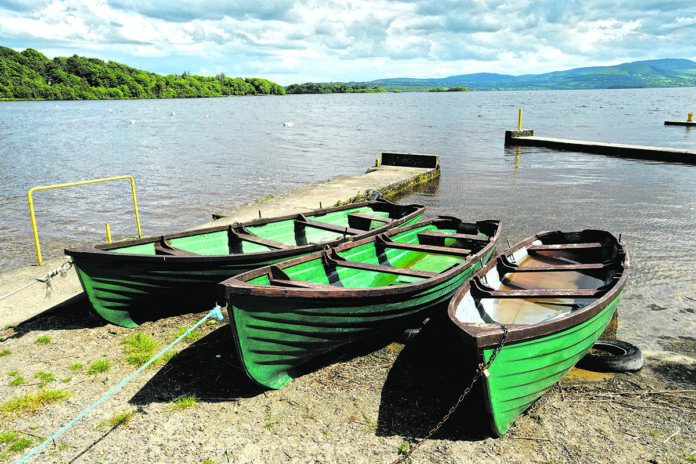A lobby group has claimed a controversial €6 billion plan to abstract 330 million litres of water per day from Lough Derg for Dublin is a “waste of taxpayers’ money” in response to a new public consultation process by one of its promoters, Uisce Eireann.
The Government has received Cabinet approval for one of the largest infrastructure projects in the history of the State, which it predicted would ensure sustainable water supplies for half of the population up to 2050 and beyond.
According to a Government statement, the delivery of the Water Supply Project, Eastern and Midlands Region is critical to sustainable economic growth, enabling housing delivery and attracting investment to support Ireland’s growing population for the next 30 years and beyond.
This project, which has now got the green light to proceed to An Bord Pleanála, has a preliminary project cost estimate of €4.58 billion to €5.96 billion, which has been developed in accordance with the principles set out in the Infrastructure Guidelines by international engineering experts Jacobs and verified by an Expert Review Panel. In addition, the Cost Benefit Analysis was developed by leading experts EY.
Based on a cost estimate of €4.58 billion, one cost benefit analysis of the project says that it delivers €12.25 of benefits for every €1 of costs and it therefore represents a positive investment for the State, according to the Government.
The Water Supply Project Eastern and Midlands Region proposes to abstract a maximum of 2% of the average flow of the River Shannon at Parteen Basin downstream of Lough Derg.
Treated water will then be piped 170km through counties Tipperary, Offaly and Kildare to a termination point reservoir at Peamount in County Dublin, connecting into the Greater Dublin network. It is expected construction will take four to five years.
However, responding to Clare Champion queries on Uisce Éireann’s consultation invitation, the River Shannon Protection Alliance (RSPA) reiterated its argument that there is no need for a Shannon Pipeline.
“Dublin has plenty of water sources which have been ignored by Uisce Éireann,” said RSPA spokeswoman, Kay Mullane.
“Supplying places like Mullingar and Tullamore on tributaries of the Shannon, Drogheda on the Boyne, Athlone on the Shannon, Carlow on the Barrow is a smokescreen.
“None of the above require a Shannon pipeline particularly to supply their future needs and can be easily served by minor augmentation of their current supply, instead of a web of expensive spur links from the proposed Shannon pipeline.
“The cost of the Shannon pipeline-is currently estimated from €5.5 billion to €10.4 billion. It is an unnecessary waste of taxpayers’ money,”
It has launched a non-statutory consultation for the Water Supply Project Eastern and Midlands Region.
The consultation will provide all stakeholders with an opportunity to give feedback on the proposed project until March 4, in advance of Uisce Éireann’s submission of the planning application to An Bord Pleanála.
Uisce Éireann said this is a once in a generation project and is the first major ‘new source’ water infrastructure in the region in the last 60 years.
“It will deliver a safe, secure, sustainable source of water supply necessary to support our growing population and economy, including the demand for housing. It is a project that will enable us to adapt to the effects of climate change by diversifying our water supply sources,” said a spokesperson.
“The Consultation will run from January 7 until March 4, 2025.
“The feedback received in response to the consultation will be used to inform the design and accompanying environmental reports, where appropriate, in advance of submitting a planning application to An Bord Pleanála.”
Uisce Éireann will host a public information open day on January 15, 2025 at the Lakeside Hotel, Ballina, from 4pm to 8pm.
East Clare correspondent, Dan Danaher is a journalism graduate of Rathmines and UL. He has won numerous awards for special investigations on health, justice, environment, and reports on news, agriculture, disability, mental health and community.



